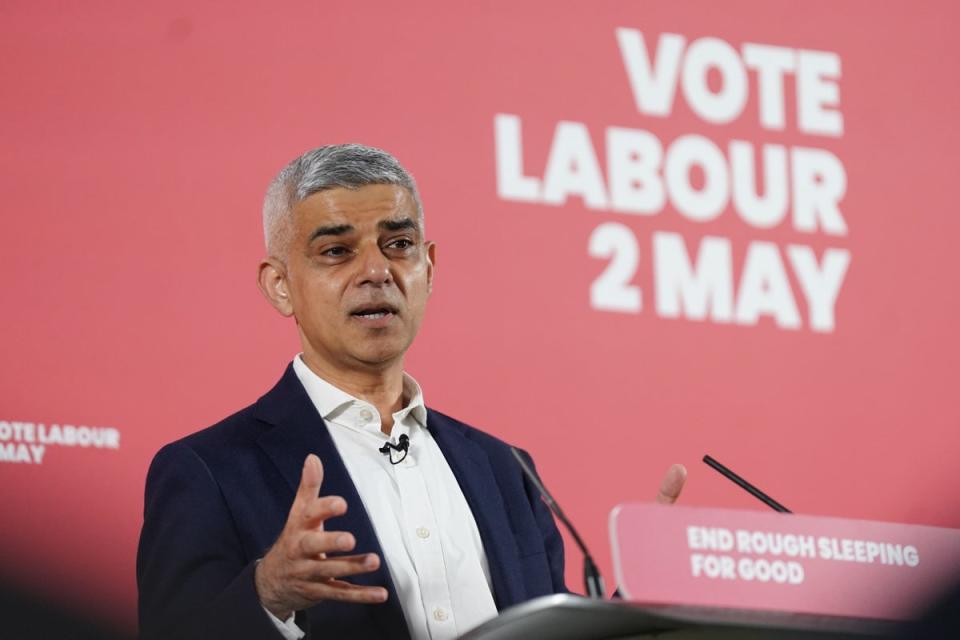London mayor election: The three big issues that could decide the 2024 result
Voters across England and Wales took to the polls on Thursday for the latest round of local elections. Early results indicate strong results for Labour, as the Tories suffer massive losses. Alongside thousands of councillors, several metro mayors are to be elected – including the high-profile Mayor of London.
Incumbent Sadiq Khan is hoping to secure a third term for Labour as he fights off Conservative candidate Susan Hall. They are amongst 11 candidates in total, including the controversial right-wing Reform UK party’s Jeremy Cox.
Mr Khan has sought to focus on his succcesses when on the campaign trail. These include an expansion to existing rail and bus lines, as well as frozen fares for Londoners.
Follow our live coverage of the elections by clicking here
The London mayor has also pledged policies which aim to tackle the ongoing cost of living crisis and housing issues many in the capital are facing. Amongst these are free school meals for all children, and 40,000 new council homes.
His competition has aimed to draw the dividing lines in different places. High on the agenda of most candidates is a change or scrap to Mr Khan’s Ulez expansion, which continues to provoke intense reactions.
Alongside challenges to his record on knife crime and changes to the electoral system, Thursday’s mayoral election is likely to be the Labour mayor’s most difficult – something he has admitted himself.
Here everything you need to know about the three big issues that have shaped London’s mayoral election:
The debate around ULEZ rages on (as Reform UK takes advantage)
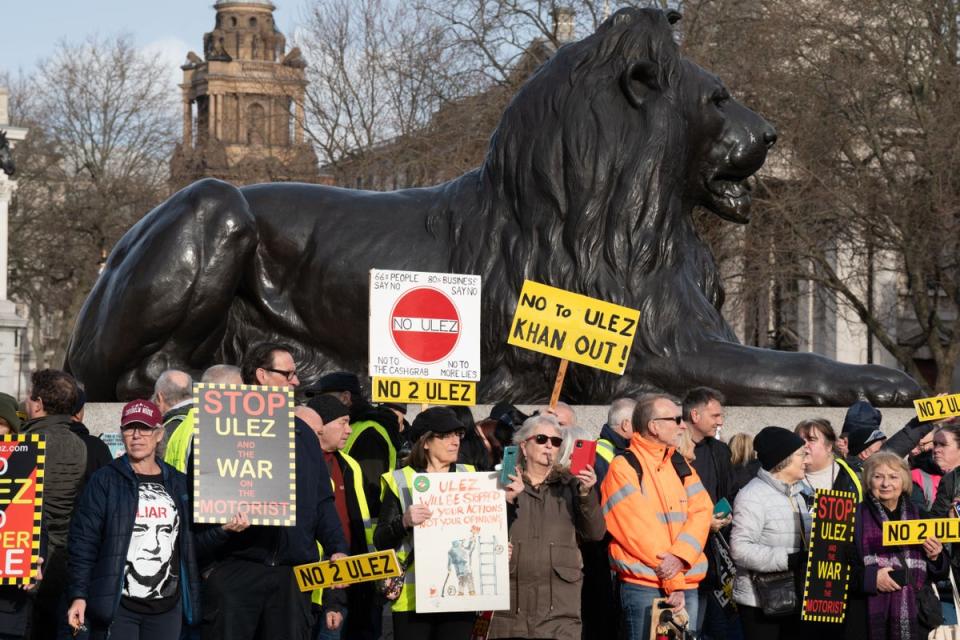
London’s Ultra Low Emission Zone (Ulez) is an area within the city inside which a £12.50 daily charge is made to anyone driving a non-compliant vehicle. It was expanded by Mr Khan in August 2023 to cover all London boroughs – sparking fierce and ongoing backlash.
The Ulez is designed to improve air quality in the capital and, although studies vary, it is generally considered by experts to be a continuing success. The mayor’s office claims that the policy reduced harmful pollution levels by around half in its first year, while more conservative research suggests a 15 to 20 per cent reduction.
Click below to see the latest London headlines
However, critics have called the new expansion a cost-raising exercise that is unlikely to significantly improve London’s air quality further, but will introduce a poorly-timed new fee to some living inside the M25 amid the ongoing cost of living crisis.
The issue has become a strong division amongst voters in London, and was a focal point during July’s Uxbridge and South Ruislip by-election (triggered by Boris Johnson’s resignation). Leading up to the election, the area saw vocal campaigning against the expansion, with some Ulez cameras in the area vandalised or even torn down.
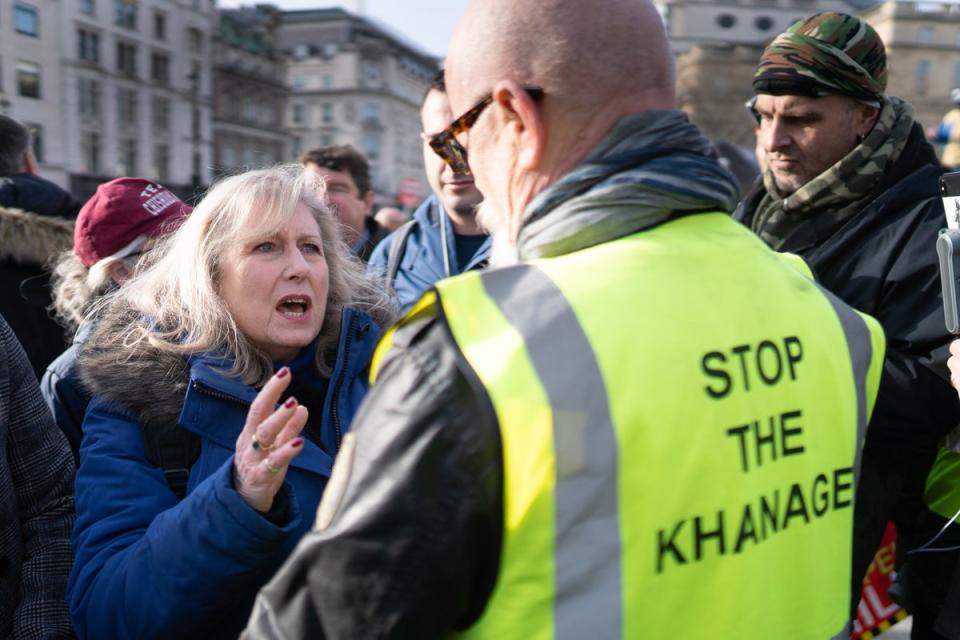
Although the policy is devolved to a regional level, and so not within the power of central government to undo, Conservative candidate Steve Tuckwell’s criticism of the policy has been linked to his narrow victory.
“We won it on the fact that it was a referendum on Ulez,” Mr Tuckwell told Sky News after his election.
The mayor’s office continues to push back on the issue. His office has strained to point out that 85 per cent of cars within outer London are already Ulez compliant, and in September ruled out ever introducing a rumoured pay-per-mile system.
But in the run-up to the mayoral election, the issue remains contentious as ever.
In her campaign pledges, Conservative mayoral candidate Susan Hall has said she would scrap the Ulez expansion as a first priority, and ensure a pay-per-mile charge is never introduced – despite Mr Khan’s insistence he has no plans for one.
Meanwhile Reform UK’s Jeremy Cox has gone even further, claiming he would scrap the entire policy, inner London included, and even refund all the Ulez fees collected since August’s expansion.
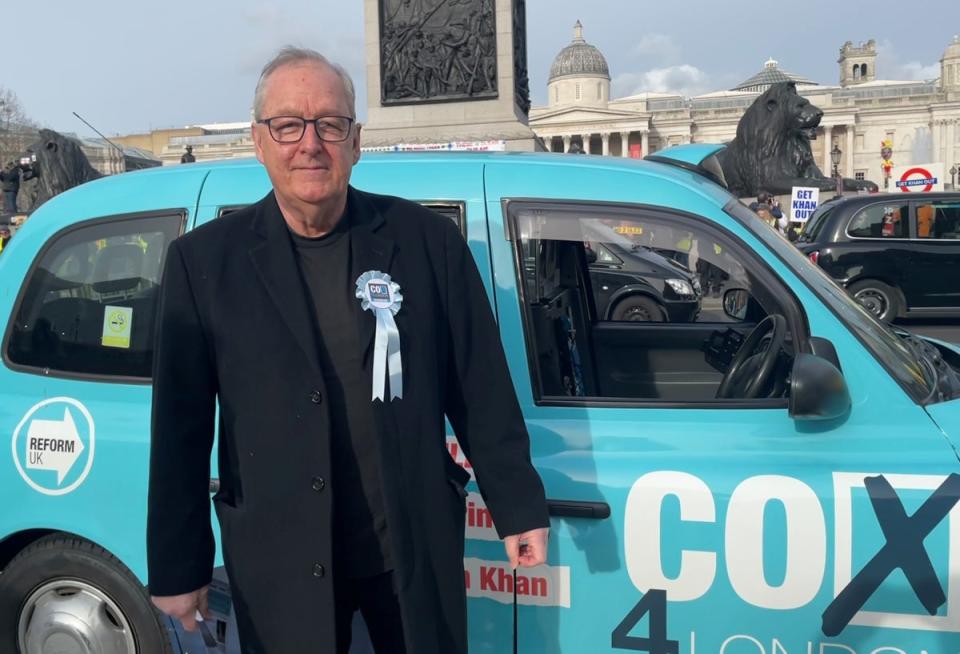
The motorist campaigner has also said he will remove London’s low-traffic neighbourhoods (LTNs), which filter traffic away from certain areas to improve air quality and pedestrian safety.
They have become another London resident talking point, creating divisions along the same lines as the Ulez debate. Critics say that LTNs – some of which have been in place for decades – only create higher traffic on diversion routes, to the dismay of commuters and residents.
However, a recent government-backed review found that LTNs generally work well and are popular. And because they are devolved to council level, it is not within the Mayor’s power to remove them directly.
Knife crime in the capital is rising – but it’s not so simple
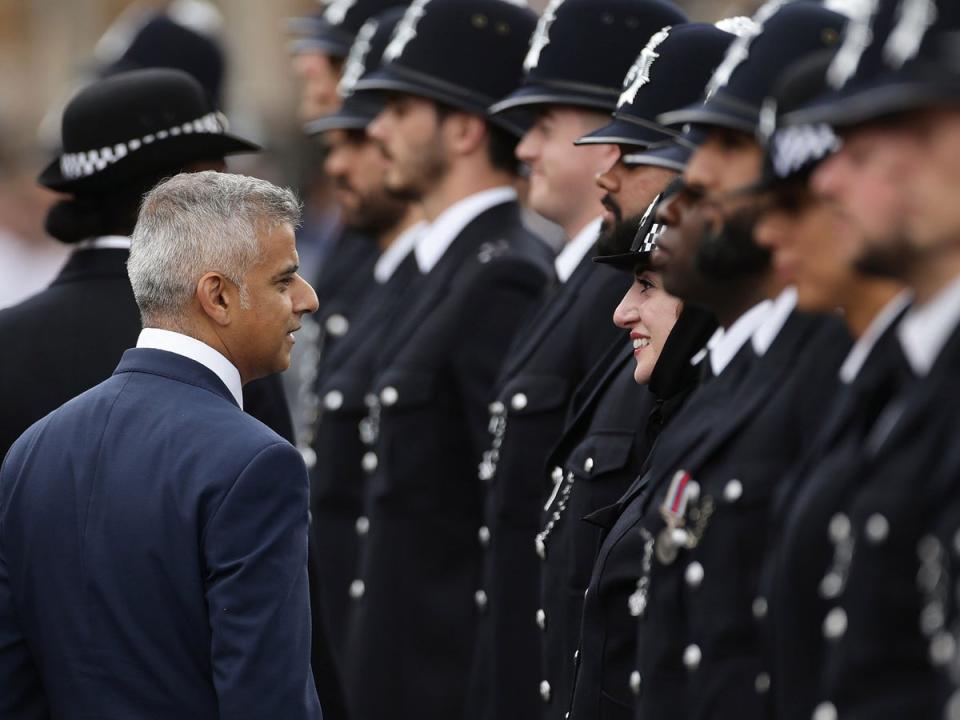
In the run-up to the election, many of the mayor’s opponents have accused him of not effectively tackling the issue of knife crime in the capital, and argue that cases are soaring.
It is true that cases of knife crime in London have risen since Mr Khan’s was elected in 2016. From 2015 to 2023, cases recorded by the Met have doubled, increasing from 9,743 to 14,577.
The year ending December 2019 saw the most serious knife-related crimes, at 15,462, with a sharp decline during the Covid pandemic. This has been steadily increasing in recent years.
Prime minister Rishi Sunak recently criticised the mayor’s record on crime, saying London under Mr Khan was the only place in the country not to meet its police recruitment targets, which he called “the reality of Labour in power”.
The mayor has pushed back against this criticism, arguing that he is contending with decades of Conservative austerity.
“We have been trying to fill the massive hole left by government cuts by investing in young people, youth clubs, after-school clubs and mentoring,” he said.
New research by the respected Institute for Fiscal Studies (IFS) backs his position, finding that closures of 70 per cent of London’s police stations since 2010 led to an 11 per cent increase in murders and assaults in nearby neighbourhoods.
And although it remains one of the top four regions with high rates of knife crime in England, London did not have the highest in 2023. Last year, the capital’s rate of knife-related offences per 100,000 people was 137, coming second to the West Midlands’ rate of 167. The average in England is 89.
There’s been TWO big changes to the voting system
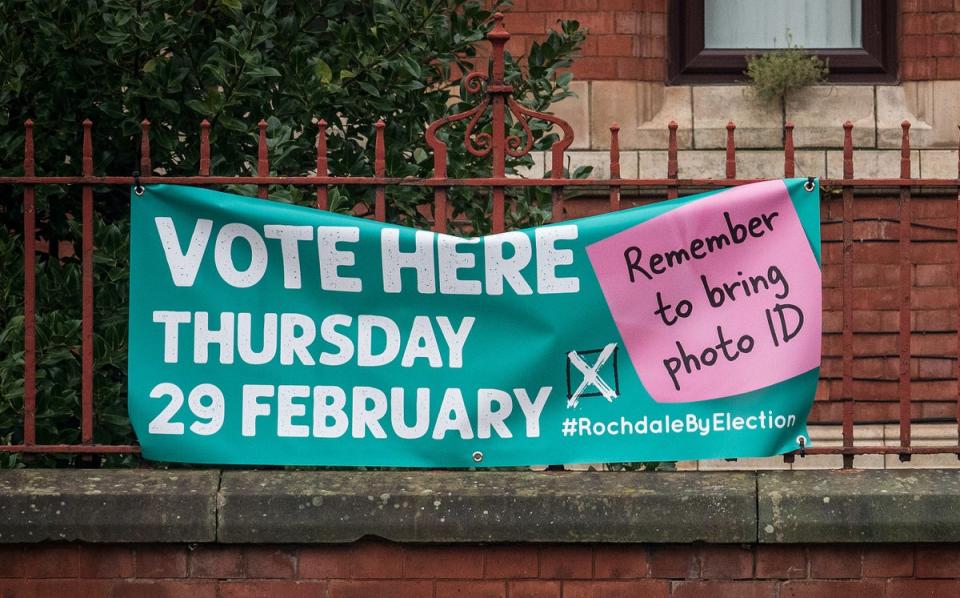
The government passed the Elections Act in 2022, bringing in some major changes to the electoral system in the UK. It has majorly changed the way votes are counted in London’s mayoral elections.
In previous years, voters selected their first and second choice candidate in a system known as the Supplementary Vote. This meant that if their first choice candidate was eliminated and neither of the top two candidates received over 50 per cent of the vote, their second choice would then be counted (if it was for one of the top two candidates).
Voters will now only select one candidate under the new ‘First Past the Post’ voting system – the same that we use for general elections. It means that whoever gets the most votes wins.
In both his 2016 and 2021 victories, Mr Khan was elected in the second ‘round’, having failed to secure 50 per cent of first choice votes. However, he still would have won both times under the new system, as he secured more votes than his second-place opponents.
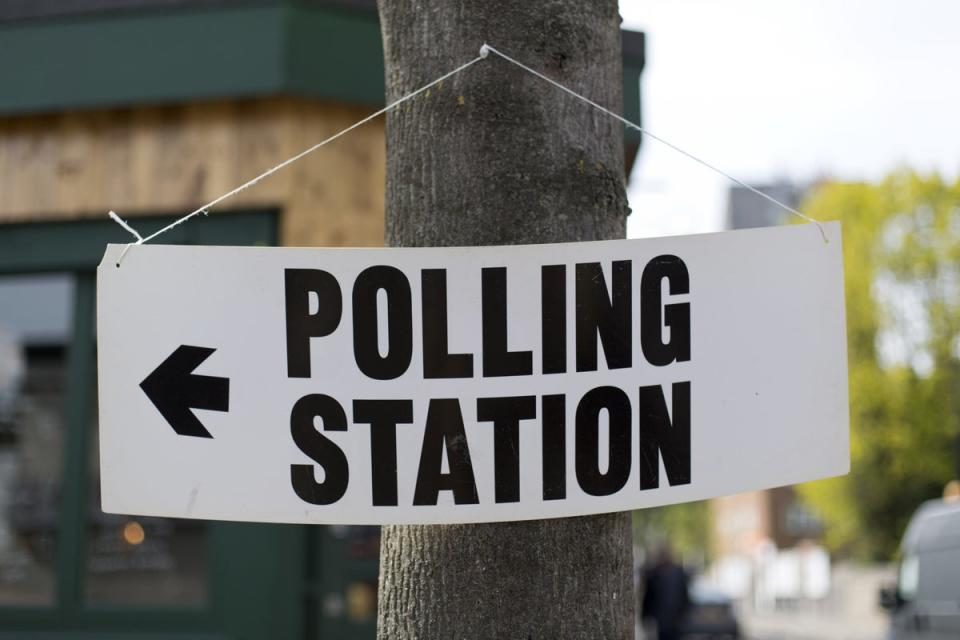
Another key change to come from the Elections Act are the controversial new voter ID laws, which means voters must now bring photographic identification to the polling station on election day.
Passports, driving licences and the new voter authority certificate are amongst the accepted forms of ID. The government says the new laws are designed to crack down on election fraud. However, critics point out cases of this in the UK are rare, and that laws may disproportionately affect marginalised communities’ ability to vote.
Mr Khan has expressed his concerns about the new changes, saying the Conservative party made them “to make it more likely their candidate will win.”
The mayor called on Lib Dem and Green voters who gave him their second choice vote last time to vote for him alone this time, arguing that the margins will now be tighter.

